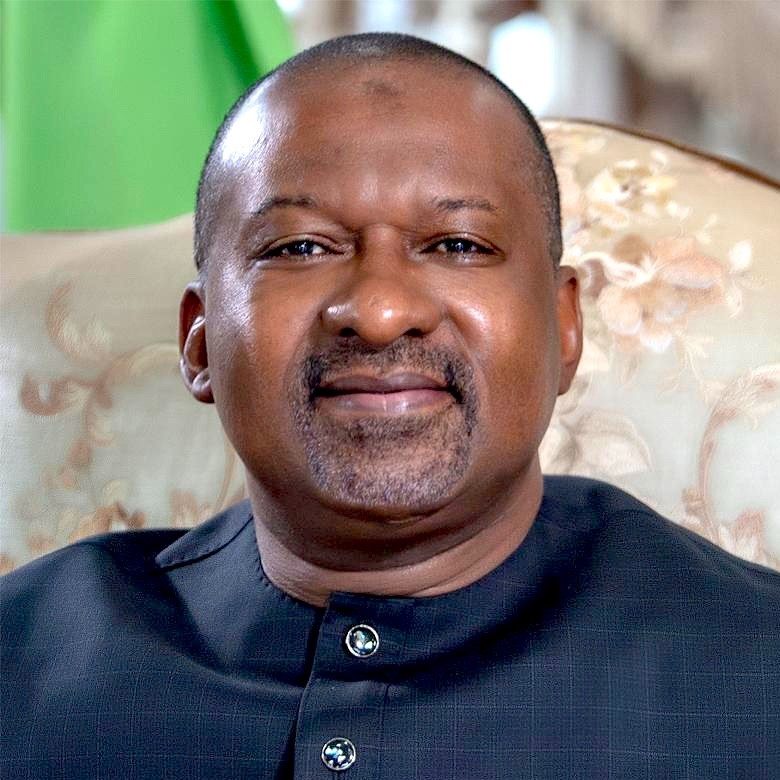The Honourable Vice President, Dr Mohamed Juldeh Jalloh has on Thursday 12 September, 2024 launched the Strengthening Resilience in Food Systems Transformation workshop at the Bintumani Hotel Conference Center, Aberdeen in Freetown.
In his keynote address, Hon Vice President Dr Jalloh emphasized on the need for coordination and the building of connection among various stakeholders, noting the vital role of Ministries, Departments and Agencies (MDAs), development partners, and Civil Society Organizations.
He re-echoed the need for coordination in order to achieve the aspiration of transforming food systems, adding that coordination is the most important and critical element in the systems, he also stressed that the only way to work using a systemic approach is to function as a whole through coordination.
He informed all about Sierra Leone’s overwhelming dependency on food importation, pointing out that food importation contributes a significant portion of the country total imports especially rice. He explained that the dependence on food importation is affecting the cost of living and domestic food production.
The Hon. Vice President revealed that poor rural households are more likely to suffer from food insecurity, particularly people in far-to reach areas like Falaba with rough road network. He said the reality of road network affects food systems through the progressive increase in the prices of food commodities.
Hon Dr Jalloh said transforming food system is not just a priority but an imperative for the Government of President Bio. He revealed that the focus of the “Feed Salone” initiative is to increase agricultural productivity and economic growth, reduced the country’s reliant on food import, and then placed nutrition and food security at the center of Sierra Leone healthcare delivery indicator. He expressed optimism for the achievement of food system sustainability as a government and stressed on the need to strengthen food system resilience.
The Hon Vice President said that the “Feed Salone” programme is going to provide multiple opportunities to build transformative food systems, further revealing the increase allocation of budget from two (2%) percent to seven (7%) to agriculture. He also informed about the significant progress in the increase of local food production like onion, and the progressive reduction in food importation especially rice by 33%. He described the progressive reduction in food importation as one of the objectives of the “Feed Salone” initiative of the government, noting that government would do more with the scaling up of food production activities.
Hon Vice President Dr Jalloh said that the important value of the workshop was on food systems by supporting food production and utilization in the context of scaling up production and become climate sensitive. He buttressed the need to transition from utility to productivity energy in order to support and scale up production, transform food system, and ensure that the production line is climate sensitive. He called for the investment in renewable energy and transition the country to a low carbon energy source in order to produce greenhouse gas emission and build a climate resilience and sustainable energy sector.
Vice President Jalloh identified climate change impact as a challenge that affects food systems. He explained that the establishment of the Environment Ministry by President Bio is a demonstration of commitment to address environmental issues, and lauded the Minister of Environment for his strides in supporting water management.
He referred to private sector investment as an important component to scale production. He called for the expansion of capital or loan agreement with a limited interest rate for private sector investment in local food production. Hon Dr Jalloh emphasized on the need to support road network so as to enable farmers’ access to market and sell their goods. He disclosed the construction of roads that lead to remote areas as a priority of the government with the aim of addressing the challenges of market access and storage.
Vice President Jalloh thanked the Minister of Agriculture for his fantastic outflows by showcasing the country and actualizing a pledge of One Hundred and One Million United States Dollars as a commitment towards successful implementation of government’s “Feed Salone” programme in Kigali.
He stated that the workshop is of great interest to the Government of Sierra Leone, particularly as Government is implementing the multi-sectoral policies and programmes to improve food security. Vice President Jalloh defined food system as all inputs, processes and infrastructure involved in feeding and nourishing a population. He further explained that food system involved production, alleviation, processing, marketing, and consumption like the energy required for the production of rice.
Minister of Agriculture and Food Security, Dr Henry Musa Kpaka said making the “Feed Salone” different from just food production is to improving the knowledge base of children. He identified poor road network, electricity as some of the things that are to be put place for the success of the food initiative. He disclosed that farmers can invest in agriculture if there are good roads in far farming communities, electricity and good irrigation.
Credit: Aaron Bundu Lahai-Head of Media & Public Relations











